Episodes
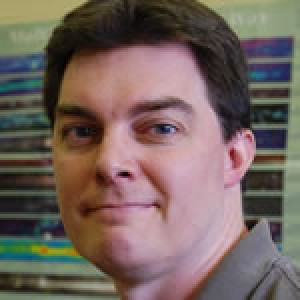
Monday Jul 22, 2019
Episode 069 - Fr. Lawrence Machia OSB and Daniel vanden Berk, part II
Monday Jul 22, 2019
Monday Jul 22, 2019
- For background on Fr. Machia and Dr. Vanden Berk and this interview, see the show notes for Episode 68.
- In Episode 69, we mentioned approvingly one of the many books about Galileo, who was central to Fr. Machia’s talk at the conference. The book is Galileo’s Daughter. Contrary to a still-commonplace assumption in popular culture and the average person’s understanding of history, Galileo did not see his life as one centered on conflict with the Catholic Church.
- People’s instincts to see a huge conflict between science and religion in our own time deserve to be taken seriously. Co-host Paul points out that, even in his youth, he was interested in the polemic potential between his faith and his interest in geology. This was crystallized (no pun intended) by his reading of Great Geological Controversies, published in 1983 by Oxford University Press. It identified challenges—among scientists themselves—which were raised to previous understandings in geology.
- How can scientists of faith, such as the members of the Society of Catholic Scientists, play a role in addressing the conflict between science and religion as it exists today? They can act as witnesses to the compatibility of the two fields of knowledge in their own lives, said Dr. Vanden Berk.
- Fr. Machia pointed out that, as expressed by Saint John Paul II, one key to the compatibility is that one discipline does not pretend to do what the other does. Don’t read the Bible as a science text, he said, since science is not what the Bible is about; it spends a relatively tiny amount of time on subjects that might be construed to be science-focused. The two fields of knowledge have their own distinct competencies.
- Saint John Paul II wrote about the compatibility of science and religion. Here’s an essay by noted bioethicist Father Tad Pacholczyk on the subject, drawing from John Paul’s insights.
- As Fr. Machia points out with reference to the insights of Pope John Paul, one area of relationship between the disciplines of science and religion is the subject of ethics. After all, what’s the point of doing anything, like scientific research, if you’re not thinking about why you’re doing it? In the case of science, humans confront issues of power over creation—and how to exercise that power. That answer is informed by how we see our humanity, and that question was exactly the topic of the SCS conference at which we held this podcast discussion.
- Galileo himself wrote about the compatibility of these fields of knowledge in his letter to Madame Christina of Lorraine in 1615. Here’s an essay discussing that letter.
Times continue from the Episode 68 listing.
28:00 Galileo's Daughter
30:00 Biblical minimalism
32:00 Geological arguments about the Flood
34:00 Conflict thesis persistence; Daniel another who never saw the conflict
36:00 Need to teach the contemporary theory, wherever our religious theories place us
37:00 Contributions of Catholic scientists to the future of science: need to respect the "volume argument"
38:00 Galileo on the Bible as not an astronomy textbook
40:00 Past, present and future of science
42:00 Wrapup
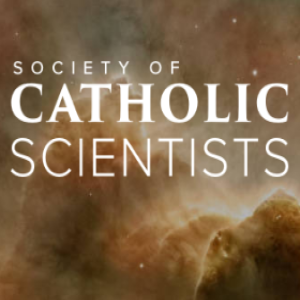
Monday Jun 17, 2019
Episode 064 - SCS 2019 Panel, part II
Monday Jun 17, 2019
Monday Jun 17, 2019
This is the second part of our panel discussion with two conference attendees, Merissa Newton, a philosophy instructor at the University of New England and Geoffrey Woollard, a cancer researcher at the University of Toronto.
[This file is vastly improved from the original version; Bill was able to provide a backup from his portable microphone.]
The individual videos of the conference talks are or will be posted soon at https://www.catholicscientists.org/ideas/theme/video-archive
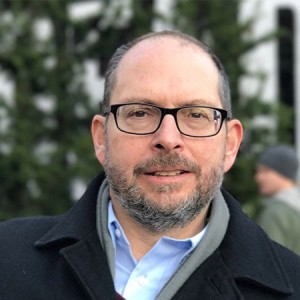
Monday Jun 03, 2019
Episode 062 - Jonathan Lunine SCS Conference Preview
Monday Jun 03, 2019
Monday Jun 03, 2019
We had more insane audio problems on this episode; Paul's audio from Zencastr was unusable. I had to record a new introduction and first question, then splice in our backup recording from Zoom.
Jonathan Lunine is a prominent planetary scientist. He teaches at Cornell and is a member of the National Academy of Sciences; he has won a Urey award and holds a number of other academic distinctions. He worked with the radar and other instruments on the Cassini mission to Saturn and is co-investigator on the Juno mission now in orbit at Jupiter as well as on the MISE instrument for the Europa Clipper mission. He is on the science team for the James Webb Space Telescope, focusing on characterization of extrasolar planets and Kuiper Belt objects.
I opened the interview by asking his side of the story of the beginning of the Society of Catholic Scientists. We discuss its growth so far and how it is reaching the point where hopefully more members will become involved in planning and carrying out activities.
We discussed the overall trajectory of conference themes so far. (Remember, kids, two points may suffice to draw a straight line, but not to define a trend!) The first SCS conference topic was Origins (mostly of the physical universe). The second focused on the Human Mind and Physicalism. This third one zooms out somewhat again and covers humanity more broadly, and touches on two hot-button points:
- If we have all these distinctively human features (consciousness, free will, etc.), is there any way of knowing when in absolute, archeological/geological time those came into existence?
- Given all our biological and electronic capabilities, we can change our own bodies and brains in radical ways, and these capabilities are only going to grow. Where should we stop? What channels should these abilities be directed into, and where do the dikes belong?
Jonathan hopes that the diversity of speakers, not just from different sciences but across the science-facing pieces of the humanities, will become a hallmark of the SCS conferences: a place where badly needed interdisciplinary conversations are fostered. We discuss the difficulties inherent in our siloing, not just of academic disciplines, but of journalism, too.
Once again, SCS conference will happen June 7-9 at the University of Notre Dame. We will be providing bonus episodes during the conference as we discuss the topics and speakers with conference attendees, and will have breakdowns of the conference and speaker interviews rolling out over the ensuing weeks.
Also be sure to check the SCS website for videos of the actual talks!

Monday May 20, 2019
Episode 060 – What Does It Mean To Be Human? (SCS 2019)
Monday May 20, 2019
Monday May 20, 2019
Today we continue our conversation with Stephen Barr about this year’s Society of Catholic Scientists conference, which will feature great speakers discussing the nature of humanity and its bounds in terms of time and technology. You can see a full list of speakers here and the program for the conference here.
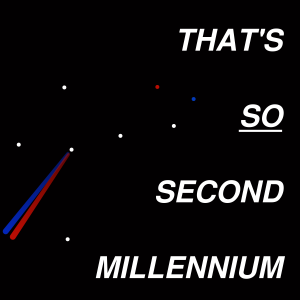
Monday May 06, 2019
Episode 058 – Let’s Act Like We’re on the Winning Side (Since We Are)
Monday May 06, 2019
Monday May 06, 2019
This ended up being an emergency episode Paul recorded solo, since Zencastr ate all but a few minutes at the beginning of each recording. There seem to be serious problems with Zencastr since Paul’s MacBook died and he had to resurrect his Windows laptop.
The Big Bang; cosmology seems to require a beginning, uncaused cause
Problems of mind; intellect / qualia, possibility of free will.
There is no materialist explanation of human intellect, only assertions of dogma and crude shufflings of the feet.
Ongoing occurrence of miracles, Lourdes medical board, Fatima, Shroud of Turin; Bob Schuchts
There are far too many miracles and supernatural phenomena that defy materialist explanation: Eucharistic miracles, healings at Lourdes and elsewhere, Fatima, demonic possession…
The testimony of the first Christian disciples requires absolutely crazy explanations that themselves defy our best science even if we reject the idea that Jesus rose from the dead.
The continuing existence and expansion of the Church in the face of persecution is likewise historically unparalleled, save only for the continued existence of Judaism.
Second of all, it provides perspective and healing for human problems that nothing else does.
John Warner Wallace from Breakpoint podcast; LAPD homicide officer
What has God done in my life... we GET to that, we don't start there like Mormons
Christianity provides a shockingly direct answer to the question of evil: the transcendent, all-good God is Himself willing to experience it.
The Christian faith continues to spread in Africa and Asia in the face of continued persecution, whether of the violent or of the brainwashing variety. Why is that?
The attempts of Western society to escape Christianity have made us amazingly miserable amid all our material possessions and security. Why do we so halfheartedly turn away from these distractions?
The most characteristic failing of our age, I would argue, is addiction, and addiction has evoked a powerful response in the form of the Twelve Steps. Although these Steps are deliberately offered to everyone with no attempt made to proselytize them to any specific religion—indeed many recovering addicts refuse to identify themselves as religious—nevertheless, the principles of the Steps are completely and suspiciously consistent with Catholic Christianity.
The Catholic intellectual tradition has a tremendously formidable intellectual structure, the most robust philosophical realism, an enormous storehouse of moral philosophy and psychological insight, and a wealth of stories of human drama in the lives of both saints and sinners.
Why do we slave along as intellectual second or third-class citizens in the modern world? I was just looking at the want ads of literary agents and realized that they are all blithely “progressive” members of the stumbling, bumbling cultural vanguard. Our culture is shaped by stories forged out of this nihilistic experience of forgetting an entire civilization’s worth of wisdom.
We are looking to help out at the Society of Catholic Scientists Conference this year, and are in talks about how we can do that. We’re really excited about working to create a greater sense of community among Catholic scientists!

Monday Apr 29, 2019
Episode 057 – The Best Thing Out There
Monday Apr 29, 2019
Monday Apr 29, 2019
Apologies for the sound quality today; Zencastr wasn’t working, so we recorded on Zoom, and even then there were problems with the audio especially in the latter half of the podcast.
The question we take up at the beginning of the Easter season is this: Why has Western society gone to such pains to throw away the best thing going, intellectually and otherwise?
In his ongoing podcast research, Paul has come across the Pat Flynn Show, and listened to some really good interviews with Fr. Robert Spitzer (a TSSM interviewee) and Ed Feser (whose talk at the 2018 Society of Catholic Scientists conference was the topic of one of our most popular episodes). Bob Spitzer’s interviews in particular were some of the most inspiring things I’ve encountered recently and really led me to propose this series of conversations with Bill about how Catholic Christianity is the best way of looking at the world.
Of course, Western society has drifted hard away from its roots in classical Greek and Jewish/Christian heritage. Ireland is the most recent example of a society, one of the last to retain a semi-traditional cozy relationship between the Church and the state, now deciding to punish the Church for the crimes of the hypocritical members of its clergy by trying to erase its very history. Progressivism in general replaces traditional dogmas with dogmas-of-the-day, and the record up to this point has been pretty dismal.
We spend some time discussing the roots of what the contemporary West seems to consider its greatest achievement, modern science, in the critical tradition of Scholasticism (knowledge of which was practically the first thing to go after the Reformation began the process of intellectually punishing the Church). We would do better to have a broader memory of the Scholastic tradition even among us Catholics...to recall that it was a movement in which Thomas Aquinas was embedded, rather than remembering only him. In our time as well we don’t need single hero figures, we need a community. The scientific community knows this very well.
We go on to consider what this fraught term “dogma” really means. The Christian dogmas are really testimony, and they can’t change without repudiating the unrepeatable testimony of the events of salvation history. This is the context of the warnings at the end of the Apocalypse of John, “cursed be he who adds or takes away from the words of this book.” As Chesterton and many others have pointed out, these dogmas are not a straightjacket but a foundation and structural members that allow us to build both intellectual structures and actual human lives that don’t sink into the morass of changing human inventions. Admittedly there are many Christians, Catholics included, who seem to take comfort in the false idea that the Bible, or Tradition, provides us all the answers we could possibly want to know and there is no need or use in further growth. That is not the teaching of Jesus when he commented that the Spirit would [future] lead us to all truth.
The high Middle Ages confronted the question of harmonizing Aristotle with Jesus Christ. This was both a creative and a logical process that led to great works of criticism and synthesis… excellent practice for the scientific process as we now know it.
A reminder that the Society of Catholic Scientists Conference is approaching June 7-9. Registration is open through May 15.
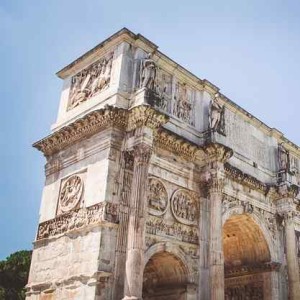
Wednesday Apr 24, 2019
Post Christian: World War I Museum
Wednesday Apr 24, 2019
Wednesday Apr 24, 2019
Two weeks ago I went with some friends to Kansas City. I drove through Kansas City once in I-70 in 2016, but I had never stopped before. Turns out it's a wonderful place, and I really want to haul my brother and his family there sometime to catch a game at Kauffman Stadium, with all the attractions directed toward children, and eat a lot of barbeque and drink some Boulevard beer.
We went to the jazz museum and the Negro Leagues museum, as well as the World War I museum. When we asked why it was in Kansas City of all places, the answer was that no one else had one, so they figured why not. Given Kansas City's location, an enormous number of soldiers passed through by rail on their way to and coming back from Europe, an enormous fraction of the total number from the West, so there's at least that much connection. In any case Kansas City dedicated a prominent hilltop to this museum. It has an enormous pillar that you can ride up to get the most elevated view of the city (aside from aircraft).
With Darcia Narvaez' words about egalitarianism in my mind, I reflected (as I have often done in the past) on the absolute madness of World War I. Understanding how it started seems easy to me, but I cannot imagine how the war continued through the end of 1915, let alone ground on for three additional years. The question of why the leaders of the countries involved kept ordering their men to fight I set aside for today; the question I am interested in is why the common soldiers and civilians did not revolt years earlier than they did. What gave them such durable loyalty to the aristocratic and oligarchic governments that sent them to such fruitless slaughter?
Based on what I know of ancient and medieval Europe, I find the men of World War I far more ready to acquiesce to authority than their forebears. Can you really read the history of the Hundred Years' War, the Wars of the Roses, or the whole sorry tale of the Holy Roman Empire and its "rights of private warfare" and imagine that those states could ever have forced their subjects to such extremes? How long would any army of Crusaders have stayed in those trenches, with nothing better than the War Ministry's authority to compel them?
There are far too many reasons to discuss in a blog post, but I want to bring up one axis before I close. The states of Europe of the early 20th century were fired by nationalism, tribalism writ large. I have heard that although many, many aspects of human culture are mutable, one unshakable aspect of sociology is our tendency to identify in-groups and out-groups, to designate some human beings as our enemies and in essence to deny them humanity. Europe of the Middle Ages had their national identifications, but their local identity was in many cases stronger and more important, and they also had the overarching sense of brotherhood in a common faith, family, and indeed in the most visceral Christian image, they had an awareness of themselves as one body in Jesus of Nazareth. They betrayed this understanding regularly, but they balked at the kind of slaughter that makes World War I stand out as a satanic spectacle in the history of our species.
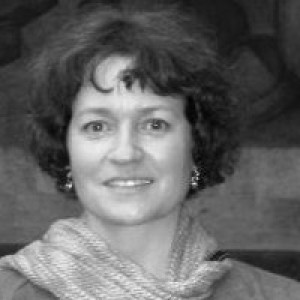
Monday Apr 22, 2019
Monday Apr 22, 2019
Today we present the second half of the interview with Darcia Narvaez, social scientist at Notre Dame and a specialist in childhood inculturation, attachment, and bonding issues.
We start out this half of the interview with a discussion of what Karl Polyani called the "great transformation" of European society, involving the breakdown of the pre-modern order and its safeguards for a stable population by means of understandings about community use of land, perhaps resulting in the popularity of emigration to the New World by dispirited, dispossessed, and to some extent dangerous people.
Several times Darcia disparages "hierarchy," understood in its general sense of social stratification, which she or other who have influenced her theorize to have caused huge social catastrophes, including the corruption of the Christian Church by its integration into the late Roman state and the collapse of populations and cultures in the New World on contact with the colonizers from Europe. Late in the podcast I ask her explicitly whether there is any benefit to civilization... let us know in the comments on Facebook or Podbean what you think about the answer!
Darcia's claim is that humans are by nature more egalitarian than other animals. This goes right down to childrearing, where human children, born so completely needy, have an innate expectation that their requests for assistance will be met. She comments that there is a Native American word, "wetiko," that was used to describe an attitude thought of as akin to a sickness that characterized those who acted in an aggressive and exploitative way toward others. Whether or not premodern peoples were all more free of this, it's certainly a common feature of civilized peoples. The Old and New Testaments certainly testify to this, and the need to confront it with compassion and an egalitarian attitude. We discussed the specific example of the disease of the large organization, society, business, or government, in which those at the top are simply disconnected, both intellectually and morally, from those at the bottom.
We mentioned subsidiarity, and might have mentioned clericalism... the social science of these concepts will hopefully be fodder for future podcasts.
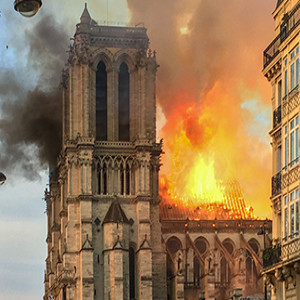
Friday Apr 19, 2019
Post Christian - What Are Churches For?
Friday Apr 19, 2019
Friday Apr 19, 2019
Photo by LeLaisserPasserA38 - Own work, CC BY-SA 4.0, https://commons.wikimedia.org/w/index.php?curid=78064310
I was minding my own business, trying to do a little work on my aunt's laptop while mine is in the shop, when I noticed this Washington Post article about 1) massive donations to repair Notre Dame de Paris after its roof caught fire on Monday, taking the 19th century spire with it, and 2) criticisms of the hyper-wealthy people who will open their checkbooks to replace a European landmark but not whatever other social causes the critics think most important.
My first thought on seeing the fire was simply, "How does this still happen?" Fires have of course consumed any number of cathedrals, palaces, temples, city halls, fortresses, and other buildings of note over the centuries, but we have an awful lot of fire suppressant and monitoring technologies these days. Repair work of some kind was already going on as shown by the scaffolding over the roof prior to the fire.
The article drew out a second line of thought that had been lurking in the back of my mind. France is of course the birthplace of modern Western secularism, the country where the hypocrisy of the Catholic Christian establishment yielded directly to the raging adolescent fury of revolution. It is where the modern pattern of punishing Christianity for the sins of the hierarchy and political establishment by pretending it never had any intellectual foundation was first constructed.
It's a mercy, in that environment, that so much of France's medieval legacy survived in the form of art and architecture. In a way it's good that the French opinion of their own culture is so staggeringly high. Yet these churches are so empty. When I visited France in 1998, I was deeply saddened by this. I wandered through many of these churches in Paris, Saint-Malo, Tours, and Amboise. The churches whose names you might recognize are kept up as museums; there are many, less famous, that are falling into decay even within towns like Amboise. The sprinkling of priests and faithful is spread across the remaining churches exceedingly thinly.
It all makes me feel a little better about our situation here in the United States. Still, when my local parish was holding its campaigns to rebuild the 19th century church and 1920s school building, I kept thinking, "I am glad that we can be this generous to repair roofs and redo tuckpointing... how about we put out this effort to fill these buildings with new people hearing the Good News about how Jesus can actually be in their lives after we rebuild them?"
I listened to two podcasts by Bishop Robert Barron and John Stonestreet of the Colson Center about the fire and how it has been discussed in the media. They commented that today's secular culture wants to focus on Notre Dame de Paris as simply a landmark, an icon of French culture, a pretty building from a long time ago. The desire seems to be to strip this structure of its builders' purpose: to construct a memorial to the transcendent human being whose death we commemorate today, and all the truths that come to us after recognizing him. A memorial place in which the True God, the Being upon which all reality is constructed and the Creator that constructed it, could be worshipped in that man's name.
To be fair, I think the culture of modern media does this to almost everything. We live in such a shallow time. When we confront memorials of centuries past, whether buildings like Notre Dame or books or works of art, we would do better to consider for a while why their makers did what they did and whether human beings with a different outlook on life have something to teach us, or to remind us.

Monday Apr 15, 2019
Episode 055 - Darcia Narvaez on socialization and isolation
Monday Apr 15, 2019
Monday Apr 15, 2019
Find Darcia's writings and resources across the internet:
Resource Page at Psychology Today
Topics we discussed in this podcast:
The human need for socialization from the very beginning, and ways that goes awry in contemporary society.
Things we can do to learn some of these lessons later in life:
- Self-calming via breathing, meditation, prayer. (Does our contemporary culture of outrage stem from a lack of the ability to calm ourselves that we are meant to learn starting in infancy?)
- Build a social network. We were meant to have interaction with an extended family that spans all age ranges for proper socialization. It's not too late to play with children, talk to the elderly, interact with people at other stages of life.
- Learn new languages and interact with people in different cultures. What are their reasons for doing the things that they do?
- Spend time with nature.
- Practice going outside yourself, defusing rigid thinking and attachment to "it has to be done this way." Intelligence is a measure of flexibility as much as anything.
Bill asked about social media and our tendency to seek out those who already agree with us. Darcia noted that we need guidance on how to socialize. Up through age 30 or so, it's natural for human beings to get that kind of guidance from others. Unfortunately we get that guidance through TV and video games now.
As usual, this was the first half of our interview. More discussion and more questions than we could possibly answer next time!

